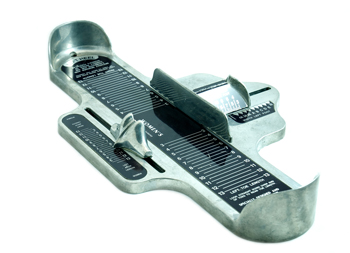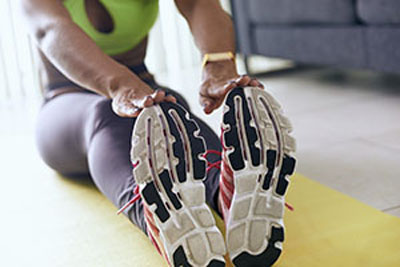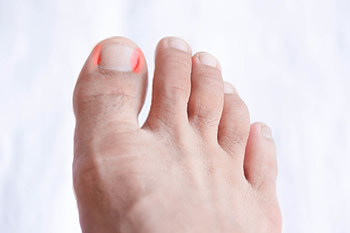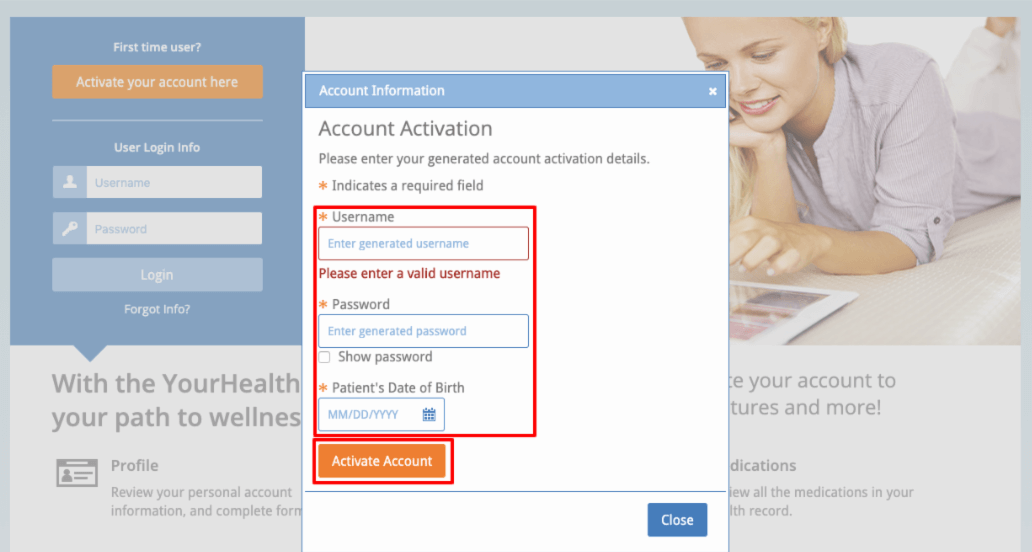Connect With Us
Blog
Items filtered by date: May 2020
Teenagers and Sever’s Disease
 Children and young teenagers may be affected by a condition that is referred to as Sever’s disease. This may occur when they frequently participate in certain sporting activities. It is known as a condition that impacts the growth plate in the heel, and can cause severe pain and discomfort. Heel pain is a common symptom, and many children begin to limp to diminish the weight on the foot. Moderate relief may be found when the foot is elevated, and when specific foot stretches are performed. This may help a tight Achilles tendon to loosen, which may aid in decreasing tension on the tendons that are connected to the heel. Additionally, it is important to wear shoes that fit correctly, which generally consists of ensuring there is adequate support and cushioning. If you notice your child is limping, or complaining of heel pain, please schedule an appointment with a podiatrist who can properly diagnose and treat Sever’s disease.
Children and young teenagers may be affected by a condition that is referred to as Sever’s disease. This may occur when they frequently participate in certain sporting activities. It is known as a condition that impacts the growth plate in the heel, and can cause severe pain and discomfort. Heel pain is a common symptom, and many children begin to limp to diminish the weight on the foot. Moderate relief may be found when the foot is elevated, and when specific foot stretches are performed. This may help a tight Achilles tendon to loosen, which may aid in decreasing tension on the tendons that are connected to the heel. Additionally, it is important to wear shoes that fit correctly, which generally consists of ensuring there is adequate support and cushioning. If you notice your child is limping, or complaining of heel pain, please schedule an appointment with a podiatrist who can properly diagnose and treat Sever’s disease.
Sever's disease often occurs in children and teens. If your child is experiencing foot or ankle pain, see Imaze Marian Davis, DPM from Marian Davis, DPM, PA. Our doctors can treat your child’s foot and ankle needs.
Sever’s Disease
Sever’s disease is also known as calcaneal apophysitis, which is a medical condition that causes heel pain I none or both feet. The disease is known to affect children between the ages of 8 and 14.
Sever’s disease occurs when part of the child’s heel known as the growth plate (calcaneal epiphysis) is attached to the Achilles tendon. This area can suffer injury when the muscles and tendons of the growing foot do not keep pace with bone growth. Therefore, the constant pain which one experiences at the back of the heel will make the child unable to put any weight on the heel. The child is then forced to walk on their toes.
Symptoms
Acute pain – Pain associated with Sever’s disease is usually felt in the heel when the child engages in physical activity such as walking, jumping and or running.
Highly active – Children who are very active are among the most susceptible in experiencing Sever’s disease, because of the stress and tension placed on their feet.
If you have any questions, please feel free to contact our office located in Miami, FL . We offer the newest diagnostic and treatment technologies for all your foot and ankle injuries.
What About Infected Ingrown Toenails?
Three reasons why ingrown toenails may develop consist of toenail injuries, wearing shoes that do not fit properly, and trimming the toenails incorrectly. They occur when the outer edge of the nail grows into the skin. This is generally a painful condition, and mild relief may be found when the affected foot is soaked in warm water. In severe cases, an infected nail may be partially or completely removed, and this can be successful in eliminating an infection. Common symptoms can include redness, swelling, and pain while wearing shoes. If you feel you have developed an ingrown toenail, it is suggested that you consult with a podiatrist who can treat this condition, and offer prevention techniques.
Ingrown toenails can become painful if they are not treated properly. For more information about ingrown toenails, contact Imaze Marian Davis, DPM of Marian Davis, DPM, PA. Our doctors can provide the care you need to keep you pain-free and on your feet.
Ingrown Toenails
Ingrown toenails occur when a toenail grows sideways into the bed of the nail, causing pain, swelling, and possibly infection.
Causes
- Bacterial infections
- Improper nail cutting such as cutting it too short or not straight across
- Trauma to the toe, such as stubbing, which causes the nail to grow back irregularly
- Ill-fitting shoes that bunch the toes too close together
- Genetic predisposition
Prevention
Because ingrown toenails are not something found outside of shoe-wearing cultures, going barefoot as often as possible will decrease the likeliness of developing ingrown toenails. Wearing proper fitting shoes and using proper cutting techniques will also help decrease your risk of developing ingrown toenails.
Treatment
Ingrown toenails are a very treatable foot condition. In minor cases, soaking the affected area in salt or antibacterial soaps will not only help with the ingrown nail itself, but also help prevent any infections from occurring. In more severe cases, surgery is an option. In either case, speaking to your podiatrist about this condition will help you get a better understanding of specific treatment options that are right for you.
If you have any questions please feel free to contact our office located in Miami, FL . We offer the newest diagnostic and treatment technologies for all your foot and ankle needs.
The Benefits of Wearing Shoes That Fit Correctly
 There are many people who wear shoes that do not fit correctly, and may subsequently experience uncomfortable foot conditions. Some of the conditions that may occur when the wrong size shoes are worn can include ankle injuries, bunions, and hammertoe. When proper size shoes are worn, the feet will feel better, and it may be easier to accomplish daily activities. Additionally, injuries related to exercise may be prevented when shoes fit properly. It is beneficial to purchase shoes later in the day, when the feet are generally at their largest, and to wear the socks that would normally be worn. If you would like more information about methods pertaining to purchasing shoes that fit properly, please consult with a podiatrist.
There are many people who wear shoes that do not fit correctly, and may subsequently experience uncomfortable foot conditions. Some of the conditions that may occur when the wrong size shoes are worn can include ankle injuries, bunions, and hammertoe. When proper size shoes are worn, the feet will feel better, and it may be easier to accomplish daily activities. Additionally, injuries related to exercise may be prevented when shoes fit properly. It is beneficial to purchase shoes later in the day, when the feet are generally at their largest, and to wear the socks that would normally be worn. If you would like more information about methods pertaining to purchasing shoes that fit properly, please consult with a podiatrist.
It is important to find shoes that fit you properly in order to avoid a variety of different foot problems. For more information about treatment, contact Imaze Marian Davis, DPM from Marian Davis, DPM, PA. Our doctors will treat your foot and ankle needs.
Proper Shoe Fitting
Shoes have many different functions. They cushion our body weight, protect our feet, and allow us to safely play sports. You should always make sure that the shoes you wear fit you properly in order to avoid injuries and deformities such as: bunions, corns, calluses, hammertoes, plantar fasciitis, stress fractures, and more. It is important to note that although a certain pair of shoes might be a great fit for someone else, that doesn’t mean they will be a great fit for you. This is why you should always try on shoes before buying them to make sure they are worth the investment. Typically, shoes need to be replaced ever six months to one year of regular use.
Tips for Proper Shoe Fitting
- Select a shoe that is shaped like your foot
- Don’t buy shoes that fit too tight, expecting them to stretch to fit
- Make sure there is enough space (3/8” to ½”) for your longest toe at the end of each shoe when you are standing up
- Walk in the shoes to make sure they fit and feel right
- Don’t select shoes by the size marked inside the shoe, but by how the shoe fits your foot
The shoes you buy should always feel as good as they look. Shoes that fit properly will last longer, feel better, and improve your way of life each day.
If you have any questions, please feel free to contact our office located in Miami, FL . We offer the newest diagnostic and treatment technologies for all your foot care needs.
Possible Causes of Cracked Heels
 The condition that is known as cracked heels is a common foot condition that may occur as a result of wearing shoes that have an open back. These types of shoes may lack the support that is needed to maintain the natural moisture of the skin, and deep cracks, or fissures may develop. Some patients are more susceptible to developing cracked heels than others. These may include people who have medical conditions consisting of diabetes, eczema, or psoriasis. It can be beneficial to incorporate healthy foods into your diet, which may provide the necessary nutrients that can aid in preventing cracked heels. Patients have found mild relief when the feet are washed and dried thoroughly, followed by frequently applying a good moisturizer. If you notice cracked heels are beginning to develop, please consult with a podiatrist as quickly as possible who can help you to remedy this ailment.
The condition that is known as cracked heels is a common foot condition that may occur as a result of wearing shoes that have an open back. These types of shoes may lack the support that is needed to maintain the natural moisture of the skin, and deep cracks, or fissures may develop. Some patients are more susceptible to developing cracked heels than others. These may include people who have medical conditions consisting of diabetes, eczema, or psoriasis. It can be beneficial to incorporate healthy foods into your diet, which may provide the necessary nutrients that can aid in preventing cracked heels. Patients have found mild relief when the feet are washed and dried thoroughly, followed by frequently applying a good moisturizer. If you notice cracked heels are beginning to develop, please consult with a podiatrist as quickly as possible who can help you to remedy this ailment.
If the skin on your feet starts to crack, you may want to see a podiatrist to find treatment. If you have any concerns, contact Imaze Marian Davis, DPM from Marian Davis, DPM, PA. Our doctors can provide the care you need to keep you pain-free and on your feet.
Cracked Heels
It is important to moisturize your cracked heels in order to prevent pain, bleeding, and infection. The reason cracked heels form is because the skin on the foot is too dry to support the immense pressure placed on them. When the foot expands, the dry skin on the foot begins to split.
Ways to Help Heal Them
- Invest in a good foot cream
- Try Using Petroleum Jelly
- Ease up on Soaps
- Drink Plenty of Water
Ways to Prevent Cracked Heels
- Moisturize After Showering
- Skip a Shower
- Keep Shower Water Lukewarm
- Don’t Scrub Your Feet
If you are unsure how to proceed in treating cracked heels, seek guidance from a podiatrist. Your doctor will help you with any questions or information you may need.
If you have any questions, please feel free to contact our office located in Miami, FL . We offer the newest diagnostic and treatment technologies for all your foot care needs.



